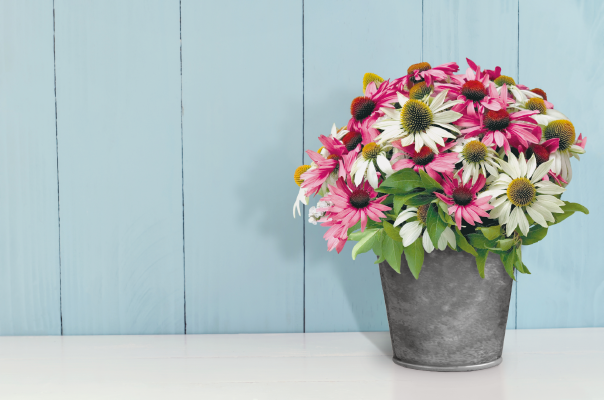
Primadonna®
- Full, vigorous and floriferous plants
- Clear single colors
- Early to transplant
- Crop Time
- Spring: 24 - 27 weeks
- Height ∅
- 30 ″ / 75 cm
- Exposure
- Sun
- Seed Form
- ApeX
- Heat Zone
- 12-1
- Hardiness Zone
- 3b-8b
- Best Uses
- Bedding, Cutflower, Landscape
Culture guide
Usage
Plants for the border, pot and container plants, medicinal plants, attractive for bees and butterflies, cut flower production
Sow time
January-June for flowering in pot from July onwards, limited flowering without vernalization, during with vernalization full flowering in next year
Sowing method
2-3 seeds per plug
Germination
10-14 days at 68-72 °F (20-22 °C). Supplemental lighting during germination speeds germination and uniformity of emergence. Keep seedlings uniformly moist, but do not over water
Growing on
Transplant seedlings into packs, 4" (10 cm) or 1.0 gallon containers (2-3 plants) when the 3rd pair of true leaves appears. Once plants have begun rooting out, grow on at temperatures of 50-55 °F (10-13 °C). Fertilize at 100-200 ppm calcium nitrate in a balanced formula on a weekly basis. For full gallon containers plant 3-5 plugs per pot.
Media
Use a well-drained, growing perennial substrate, pH: 6.0-6.5. Field: loamy sandy to sandy humus soils with good drainage. Standard fertilization: 80-100 g/m² slow release fertilizer.
Temperature
Grow at 15-18 °C or outdoors. In winter indoors frost free at 3-5 °C or outdoors. At mid December the plants start to grow for 10-12 weeks at 15-18 °C.
Fertilization
High fertilization levels are required.
Stage I Starts with the radicle breaking through the testa. The roots are touching the medium. Ends with fully developed cotyledons.
Stage II Starts from fully developed cotyledons. Ends with the fully developed true leaf or true leaf pair.
Stage III Starts from the fully developed true leaf or true leaf pair and ends with 80% of the young plants being marketable.
Stage IV All young plants are ready for sale and in the process of being hardened off. This stage lasts about 7 days.
The cultural recommendations are based on results from trials conducted under Central European conditions. Different conditions in other parts of the world may lead to deviations in results achieved.

